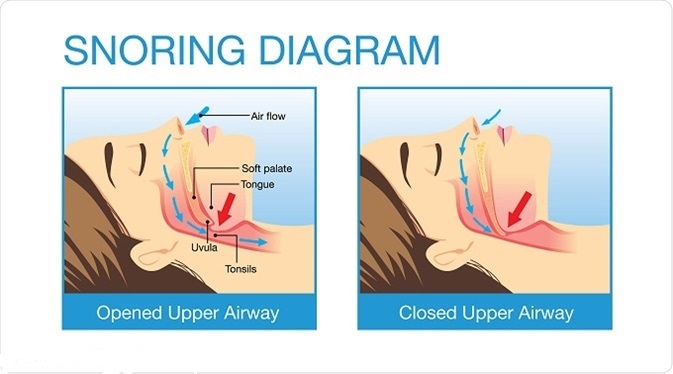Do you know that cholesterol levels vary by weight, age and gender? After some time, a person’s body tends to deliver more cholesterol, meaning that all adults should check their cholesterol levels regularly – about every 4 to 6 years.
Cholesterol is measured in 3 categories: LDL (bad cholesterol), HDL (good cholesterol) and total cholesterol. The balance between these three levels is very important. While LDL and total cholesterol levels have to be kept low, having more HDL cholesterol can protect a person against developing heart-related issues including strokes and heart attacks.
Aging

Age is the main factor in the amount of cholesterol in your blood. Being older than 45 years old (if you are a man) and older than 55 (if you are a woman) is a risk factor for having a cholesterol issues. Usually, men have a tendency to have higher levels of cholesterol throughout life than women. But women are also not protected from high cholesterol levels. During the menopause the cholesterol often increases.
Cholesterol levels for adults

Total cholesterol level less than 200 milligrams per deciliter (mg/dL) is considered normal for adults. A level between 200 and 239 mg/dL is viewed as borderline high. Values higher than 240 mg/dL is considered high.
LDL (bad) cholesterol level has to be less than 100 mg/dL. Levels between 100 and 129 mg/dL are acceptable for individuals with no health issues, but should be of more concern for those with heart disease risk factors or with heart disease. A reading between 130 and 159 mg/dL is borderline high and 160 to 189 mg/dL is considered high. A level of 190 mg/dL or higher is considered very high.
HDL (good) cholesterol level should be kept higher. A reading of less than 40 mg/dL is thought to be a major risk factor for heart issue. A reading between 41 mg/dL and 59 mg/dL is reviewed as borderline low. The optimal reading for HDL is of 60 mg/dL or higher.
Prevent high levels of cholesterol

As the cholesterol levels start to increase with age, health specialists typically recommend taking earlier steps in life to avoid high levels of cholesterol. Years and even months of unmanaged cholesterol can turn out to be considerably trickier to treat in just one go.
The 4 lifestyle changes you may be advised to make are:
- regular exercise
- eating a heart-healthy food
- quit smoking
- losing weight
If your LDL levels are still too high after these lifestyle changes, talk to your GP about cholesterol-lowering medications like statins, but give these pieces of advice your best shot.










 Pay attention to your health
Pay attention to your health
 1. Sugar is the biggest enemy of each detox program. It’s really uncomfortable for most people who’re planning to detox their bodies and the main reason is they’re addicted to sugar without realizing it. Some of them try to change sugar with substitutes for sugar, but it’s not a good decision if you want to get toxins out of your body.
1. Sugar is the biggest enemy of each detox program. It’s really uncomfortable for most people who’re planning to detox their bodies and the main reason is they’re addicted to sugar without realizing it. Some of them try to change sugar with substitutes for sugar, but it’s not a good decision if you want to get toxins out of your body. 2. Alcohol – the most consumed product which harms the liver. This is the second product you must avoid if you’re ready for a healthy life or detox your body. The main problem with alcohol is the extreme amounts of sugar it contains. As already stated, avoiding sugar is key to detox.
2. Alcohol – the most consumed product which harms the liver. This is the second product you must avoid if you’re ready for a healthy life or detox your body. The main problem with alcohol is the extreme amounts of sugar it contains. As already stated, avoiding sugar is key to detox. 3. Fruits also contain sugar, that’s why we should be very careful with them. It’s fine to have two or three fruits per day while detoxing. It’s better to reduce fruit consumption in your daily meals. This tip is essential if you’re on
3. Fruits also contain sugar, that’s why we should be very careful with them. It’s fine to have two or three fruits per day while detoxing. It’s better to reduce fruit consumption in your daily meals. This tip is essential if you’re on  4. Caffeine and
4. Caffeine and  5. Animal products are part of the daily nutrition, but when we’re talking about detox diet you need to remove them from the meal. During detox the only appropriate foods are vegetarian. That means fresh vegetables, small amount of fruits, different kinds of seeds and nuts.
5. Animal products are part of the daily nutrition, but when we’re talking about detox diet you need to remove them from the meal. During detox the only appropriate foods are vegetarian. That means fresh vegetables, small amount of fruits, different kinds of seeds and nuts. 6. Mushrooms are not good during detoxification, because they create mold into intestines. This can damage the protective barrier of the intestines. That includes all types of mushrooms even raw mushrooms.
6. Mushrooms are not good during detoxification, because they create mold into intestines. This can damage the protective barrier of the intestines. That includes all types of mushrooms even raw mushrooms. 7. The last pest here is peanuts. They contains toxins which act badly to the recovering processes of colon. Avoiding peanuts is recommended for a healthy nutrition during
7. The last pest here is peanuts. They contains toxins which act badly to the recovering processes of colon. Avoiding peanuts is recommended for a healthy nutrition during